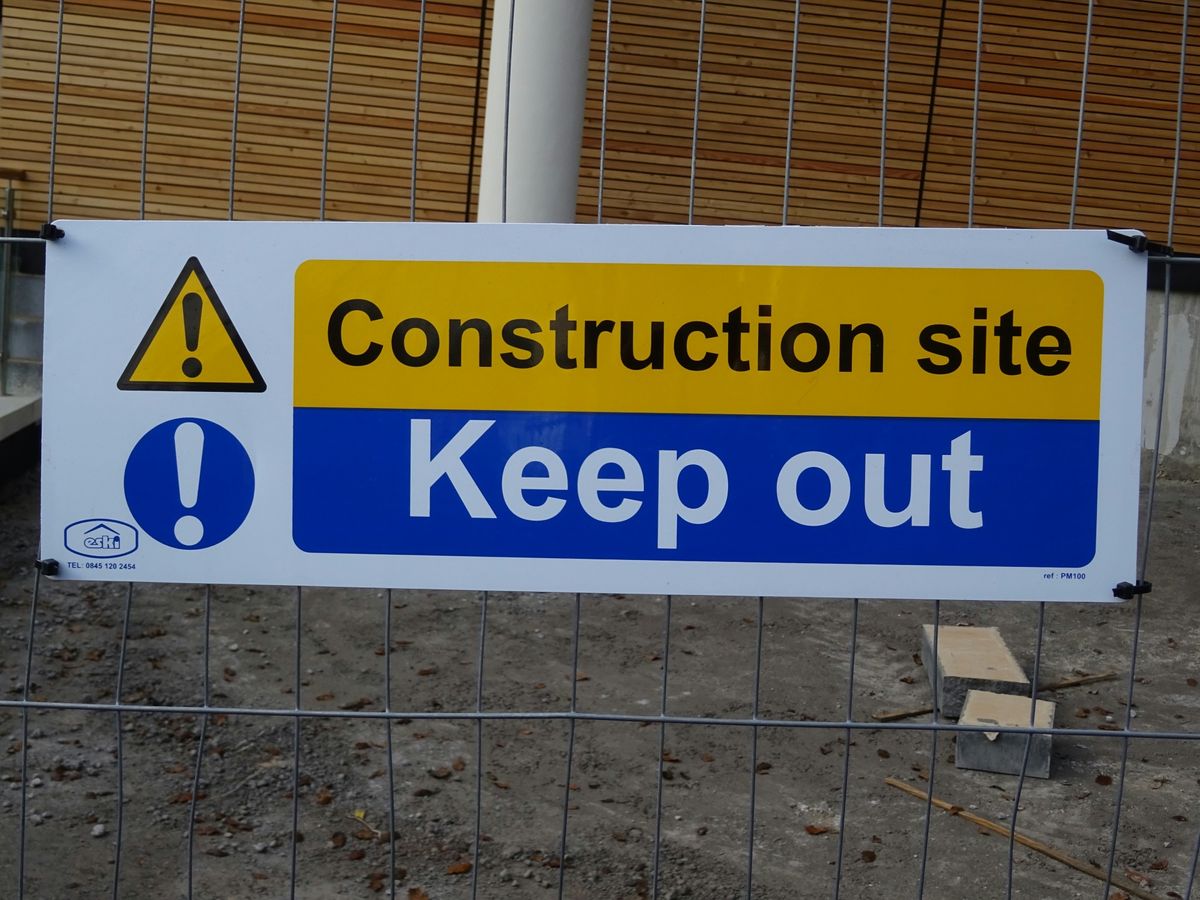In the world of construction subcontracting, the issue of collecting overdue bills is a common challenge that can significantly impact the financial health of a business. This article explores the intricacies of managing overdue payments within the construction industry, providing subcontractors with the knowledge and tools necessary to effectively navigate this complex landscape. From understanding the basics of subcontracting to implementing robust financial management practices and knowing when to seek professional help, the article offers a comprehensive guide to ensure that subcontractors are equipped to secure their due payments and maintain a stable cash flow.
Key Takeaways
- Understanding the dynamics between main contractors and subcontractors is crucial for managing overdue bills in construction projects.
- Knowledge of the legal framework and statutory payment protections is essential for subcontractors to enforce their rights.
- Effective communication and negotiation are key strategies for collecting overdue payments and maintaining professional relationships.
- Strong financial management, including cash flow maintenance and credit control, is vital for subcontractors to weather the impact of overdue bills.
- Recognizing when to involve collection agencies or seek legal and financial advice can be critical in recovering persistent non-payments.
Understanding the Basics of Construction Subcontracting
Defining Subcontracting in the Construction Industry
Subcontracting is the backbone of labor and expertise distribution in the construction sector. Main contractors delegate specific tasks to subcontractors, who specialize in niche areas of the project. This symbiosis allows for a more efficient workflow and a higher quality end product.
- Main Contractor: Oversees the entire project
- Subcontractor: Focuses on specialized tasks
Subcontracting streamlines project execution by aligning specialized skills with corresponding project needs.
The dynamics of subcontracting are complex, often leading to financial disputes. Timely payment is crucial, yet frequently elusive, echoing challenges across various trades from electrical to plumbing services.
The Role of Main Contractors and Subcontractors
In the construction industry, the main contractor holds the reins, overseeing the entire project. Subcontractors, on the other hand, are specialists hired to perform specific tasks. The synergy between the two is crucial for the timely and successful completion of construction projects.
Main contractors are responsible for the big picture, managing timelines, and ensuring that the project adheres to the client’s specifications. Subcontractors bring expertise in niche areas, such as electrical work, plumbing, or carpentry, contributing their specialized skills to the project.
- Main Contractor: Project Management
- Subcontractor: Specialized Skills
Timely payments from main contractors to subcontractors are essential to maintain a healthy cash flow and prevent project delays.
The relationship is symbiotic: main contractors rely on the quality work of subcontractors, while subcontractors depend on main contractors for consistent work and timely payment. This balance is often disrupted when bills become overdue, leading to the need for effective strategies in debt collection.
Common Reasons for Overdue Bills in Construction Projects
Overdue bills in construction subcontracting can stem from a myriad of issues. Cash flow problems often top the list, as subcontractors may be waiting on payments from other jobs to fund current projects. Delays in project completion, whether due to weather, supply chain disruptions, or workforce challenges, can also lead to payment hold-ups.
Communication breakdowns between parties are another common culprit. Without clear and timely exchanges, invoices can be misunderstood or disputed, leading to further delays. Here’s a quick rundown of typical reasons for overdue payments:
- Misaligned payment expectations
- Incomplete work or unsatisfactory performance
- Contractual disputes
- Administrative errors
Ensuring that all parties have a shared understanding of payment terms and project milestones is crucial to avoid these pitfalls.
Lastly, the complexity of the construction industry, with its many layers of subcontracting, can make tracking and securing payments especially challenging. Proactive measures are essential to mitigate these risks.
Legal Framework Governing Payment in Construction
Overview of Construction Contracts
Construction contracts are the backbone of any project, outlining the obligations, timelines, and payment terms for all parties involved. Clear and concise contracts are crucial to avoid misunderstandings and disputes.
Payment terms should be explicit to ensure timely compensation for work completed. These terms often include milestones or progress payments, which are critical for maintaining a subcontractor’s cash flow.
- Milestone 1: Project commencement
- Milestone 2: Completion of a project phase
- Milestone 3: Project completion and handover
Ensuring that all contractual terms are understood and agreed upon before work begins is essential for a smooth project execution.
Regular reviews and updates to contracts can help adapt to changes in scope or unforeseen circumstances, safeguarding all parties’ interests.
Statutory Payment Protections for Subcontractors
Subcontractors are shielded by a variety of statutory mechanisms designed to ensure timely and fair payment for their services. Prompt Payment Acts at the federal and state levels mandate strict payment timelines for general contractors to pay their subcontractors.
Retention monies, often a percentage of the contract value, are held back to guarantee the satisfactory completion of work. This practice is regulated to prevent abuse and ensure subcontractors eventually receive full payment.
- Understand your rights under local and federal laws
- Familiarize yourself with lien rights and how to exercise them
- Know the deadlines for filing a payment claim
Timely action is critical. Delaying can forfeit your rights to claim.
Contractors have legal rights for payment disputes. Protect yourself with clear contracts, records, and legal action. Navigating non-payment issues in contracting is crucial for financial health.
Resolving Disputes Over Non-Payment
When payment disputes arise, open dialogue is the first step towards resolution. It’s essential to approach the situation with a clear mind and a willingness to find a mutually beneficial solution. If initial discussions fail, mediation or arbitration can serve as effective alternatives to litigation.
Mediation offers a less formal setting where a neutral third party assists in reaching an agreement. Arbitration, on the other hand, involves a more structured process, leading to a binding decision by an arbitrator.
Ensure all parties understand the contractual terms related to payment to prevent disputes from escalating.
Remember, the goal is to resolve the issue without damaging business relationships. Here’s a simple list to keep in mind:
- Review the contract for payment clauses
- Document all communication
- Consider professional mediation
- Explore arbitration if necessary
Strategies for Collecting Overdue Payments
Effective Communication with Debtors
Clear communication is the cornerstone of recovering overdue payments. Establishing an open dialogue with debtors can often lead to understanding the root of the delay and finding a mutually acceptable solution.
- Initiate contact as soon as a bill becomes overdue.
- Be professional and courteous; aggression can damage future business relations.
- Provide clear and concise information about the debt and any agreed terms.
- Listen to the debtor’s side to identify any legitimate concerns or disputes.
Consistency is key. Regular, predictable communication can prevent misunderstandings and reinforce the seriousness of the debt.
Utilize reminders and follow-ups to maintain the momentum of the conversation. It’s not just about making a demand; it’s about fostering a relationship that encourages timely payment.
Negotiation Techniques for Payment Recovery
Mastering negotiation is key to recovering overdue payments. Start with a clear understanding of the contract terms and the reasons behind the delay. Approach the conversation with a problem-solving mindset, aiming to reach a mutually beneficial resolution.
Patience and persistence are your allies. Outline the consequences of non-payment, but also be prepared to offer flexible solutions. This could include extended payment terms or partial payments. Remember, maintaining a professional relationship can lead to more work in the future.
Establishing a structured negotiation process can significantly increase your chances of payment recovery.
- Identify the decision-maker
- Prepare your case with all relevant documentation
- Communicate the impact of non-payment on your business
- Propose clear, actionable solutions
- Follow up regularly
Proactive invoicing and follow-ups are essential strategies that minimize payment delays, particularly for specialized fields like demolition contractors. When necessary, legal recourse options such as demand letters, mediation, and arbitration can be effective in recovering outstanding payments.
Utilizing Payment Schedules and Reminders
Timely payment is the lifeblood of subcontracting. Implementing structured payment schedules can significantly reduce the incidence of overdue bills. These schedules should be clear, agreed upon by all parties, and integrated into the project timeline.
Reminders play a pivotal role in this process. A systematic approach to sending reminders ensures that payment obligations are not forgotten. Consider the following steps:
- Establish a routine for sending payment reminders well before the due date.
- Use a variety of communication methods: emails, letters, and reminder calls.
- Keep a log of all reminders sent, along with the client’s responses.
Consistent follow-up is key to maintaining a healthy cash flow. Addressing payment delays proactively can prevent them from becoming more serious non-payment issues.
Remember, detailed contracts and regular client correspondence are crucial. They provide a framework for understanding and action when payments become overdue. Addressing these issues is essential for the sustainability of your business in construction subcontracting.
Financial Management for Subcontractors
Maintaining Cash Flow Despite Overdue Bills
Maintaining a healthy cash flow is critical for the survival of any subcontracting business. Quick action is essential when invoices remain unpaid beyond their due dates. Consider these strategies:
- Invoice promptly and accurately to avoid delays in payment.
- Offer incentives for early payment to encourage clients to settle their bills sooner.
- Establish a reserve fund to cushion the impact of overdue payments.
Diversify your client base to minimize the risk of cash flow disruptions.
Remember, cash flow management is not just about chasing overdue bills; it’s about creating a system that ensures liquidity and financial stability for your business.
Implementing Strong Credit Control Procedures
Strong credit control is vital for the financial health of any subcontracting business. Implementing robust procedures ensures that overdue bills are minimized and cash flow remains steady. Key steps include setting clear payment terms and conducting regular credit checks on new clients.
- Establish clear payment terms upfront
- Perform thorough credit checks before taking on new projects
- Maintain consistent communication with clients about outstanding debts
- Utilize invoicing systems that flag overdue payments
Consistency in following up on late payments is crucial. It not only reinforces the seriousness of your credit terms but also helps in maintaining professional relationships.
Negotiating payment plans can be an effective strategy when dealing with overdue bills. It demonstrates flexibility and understanding, potentially preserving valuable business relationships while ensuring that payments are received.
The Importance of Accurate Record-Keeping
In the realm of construction subcontracting, meticulous record-keeping is not just a good practice; it’s a cornerstone of financial stability. Accurate records empower subcontractors to track every transaction, substantiate claims, and streamline the billing process.
Invoice tracking systems are essential tools that prevent billing issues and support legal actions for unpaid bills. They serve as a reliable reference when disputes arise, ensuring that every detail from labor hours to material costs is documented and easily accessible.
- Demand letters
- Small claims court
- Collections agency
These are steps that may follow when payments are overdue, but with precise records, subcontractors can often avoid these measures.
Keeping a detailed log of invoices and payments is not just about organization; it’s about building a framework for accountability and protection against financial discrepancies.
Without such diligence, subcontractors leave themselves vulnerable to disputes and financial losses. Therefore, the importance of accurate invoice records cannot be overstated—it’s the shield that guards against the chaos of billing conflicts.
When to Seek Professional Help
Identifying the Right Time to Involve a Collection Agency
Deciding to involve a collection agency is a significant step for subcontractors. Timing is crucial; act too soon, and you may damage client relationships, wait too long, and the debt may become harder to collect. Consider the following:
- The age of the debt: Older debts are harder to recover.
- Previous collection efforts: Have you exhausted all internal methods?
- The debtor’s response: Are they cooperative or evasive?
Agency reputation and success rates should also influence your decision. A reputable agency can mean the difference between recovering your funds and writing them off as losses.
It’s essential to weigh the potential impact on cash flow and business operations. Involving a collection agency should be a calculated decision, not a reactionary one.
Legal Recourse for Persistent Non-Payment
When overdue bills remain unpaid despite all efforts, subcontractors must consider legal recourse. This step escalates the matter, signaling the seriousness of the situation to the debtor.
Legal action can take various forms, from sending a formal demand letter to filing a lawsuit. It’s crucial to understand the implications and costs associated with each option.
- Demand letters serve as a final warning before further legal steps are taken.
- Filing a lawsuit may compel payment through the court system.
- Enforcing judgments involves legal mechanisms to collect debts post-court ruling.
Proactive legal measures can help recover overdue payments. Options include demand letters, lawsuits, and enforcing judgments. Consider legal advice before taking action.
Before proceeding, subcontractors should seek professional legal advice to navigate the complexities of construction law and ensure the best possible outcome.
Consulting with Legal and Financial Advisors
When overdue bills stack up, consulting with legal and financial advisors can be a game-changer. Expert guidance is crucial to navigate the complexities of construction finance and legalities. Advisors can provide tailored strategies to recover debts while ensuring compliance with industry regulations.
- Review contract terms and conditions
- Assess financial health and implications
- Develop a recovery plan with legal backing
Ensure you’re making informed decisions by tapping into professional expertise.
Remember, advisors are not just for crisis management. They can help preempt issues by setting up robust financial systems and advising on best practices. Leverage construction management software for efficiency. Engage collection agencies and legal advisors when needed. Stay informed on industry best practices.
If you’re facing challenges with unpaid debts in the construction sector, it’s crucial to seek professional help before these issues impact your financial stability. Debt Collectors International (DCI) offers specialized debt recovery services tailored to the unique needs of the construction industry. Don’t let debt disputes and project delays derail your business. Visit our website and take the first step towards regaining your financial footing by requesting a quote or placing a case with our experienced team. Act now and ensure your company’s growth and sustainability.
Frequently Asked Questions
What is subcontracting in the construction industry?
Subcontracting in the construction industry refers to the practice where a main contractor hires another company or individual, known as a subcontractor, to perform specific tasks or projects as part of a larger construction job.
How do main contractors and subcontractors typically interact?
Main contractors and subcontractors interact through a contractual agreement where the main contractor assigns a portion of the construction work to the subcontractor, who then completes that work in exchange for payment as agreed upon in the contract.
What are common reasons for overdue bills in construction projects?
Overdue bills in construction projects can be due to various reasons such as delays in project completion, disputes over the quality of work, cash flow problems, miscommunication, and sometimes, the main contractor’s financial instability.
What legal protections do subcontractors have regarding payment?
Subcontractors are protected by statutory regulations such as prompt payment laws, mechanics’ liens, and other contractual clauses that ensure they are paid for their services in a timely manner.
How can subcontractors effectively manage overdue payments?
Subcontractors can manage overdue payments by maintaining clear communication with debtors, using negotiation techniques, setting up payment schedules, sending reminders, and implementing strong credit control procedures.
When should a subcontractor seek professional help for collecting debts?
A subcontractor should consider seeking professional help when internal collection efforts fail, the amount due is substantial, the debtor is unresponsive, or when there is a need for legal intervention to enforce payment.




